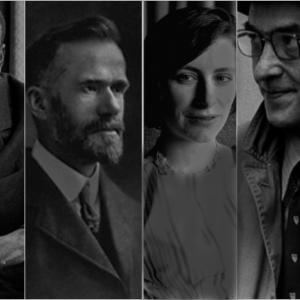
David Cramer is associate editor at Baker Academic and Brazos Press in Grand Rapids, Michigan, and PhD candidate in theology at Baylor University. His dissertation examines the theological lineage of Walter Rauschenbusch, Reinhold Niebuhr, and John Howard Yoder.
Posts By This Author
A Field Guide to Christian Nonviolence
There are different ways to understand the gospel's call to peace- and that's a good thing.
IN THE LATE 1930s, a large swath of the American church was reluctant for the United States to become involved in another war in Europe. The memory of the Great War was too fresh; what had been intended to be “a war to end all wars,” a crusade for freedom and democracy, in hindsight just looked like senseless horror. Entire denominations committed to peace positions.
This pacifist sentiment troubled Reinhold Niebuhr, who was following the rise of Hitler and spoke out against the atrocities committed against Jews long before they had reached the national consciousness. So in 1940 Niebuhr penned an essay to rally what he saw as a disillusioned, passive church into taking concrete action for social justice. He titled the essay “Why the Christian Church is Not Pacifist” and argued that in a world marred by sin, coercion and violence were sometimes necessary to pursue justice.
After the attack on Pearl Harbor, Niebuhr’s argument against pacifism won the day; U.S. churches lined up en masse to support the war effort. Since then, many Christians have taken it for granted that violence is an unfortunate but realistic necessity if we hope to bring justice in a world where injustice is so pervasive.
Yet a survey of 20th century theology shows that many Christians have grappled with violence, justice, and the gospel and arrived at conclusions quite different from Niebuhr—and from each other. These Christian witnesses for peace include familiar voices such as Dorothy Day, Thomas Merton, Martin Luther King Jr., John Howard Yoder, and Stanley Hauerwas, but also many less well-known voices, such as the ones listed on the following pages. Examined together, these eight perspectives show that Christian nonviolence isn’t a singular position, but rather a rich conversation wrestling with what it means to live out the biblical call to justice amid the complexities of ever-changing political, social, and moral situations.
Yearning to Breathe Free
Churches on the U.S.-Mexico border are making a statement about immigration—by working together to meet humanitarian need.
“I DON’T BLAME the Border Patrol. I blame our country,” Sister Norma Pimentel told Rep. Jim McGovern on a hot afternoon in McAllen, Texas, last August.
“It’s like a burning building,” explained Pimentel, director of Catholic Charities of the Rio Grande Valley, “and we’re sending them back into it.”
Pimentel was describing the U.S. policy of deporting Central American refugees back to their home countries, while Rep. McGovern (D-Mass.) nodded in agreement. He had just visited the Border Patrol central processing facility, and Pimentel was leading him on a tour of the humanitarian respite center at Sacred Heart Catholic Church.
The difference was striking: At the processing facility, children were detained in what McGovern described as “cages”; at the respite center, Catholic Charities staff and volunteers provided food, showers, clothing, medical exams, and an air-conditioned place for refugees to wait for a bus ride to meet family members living in the U.S.
